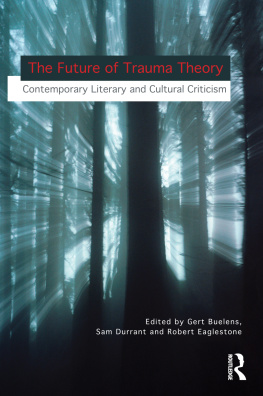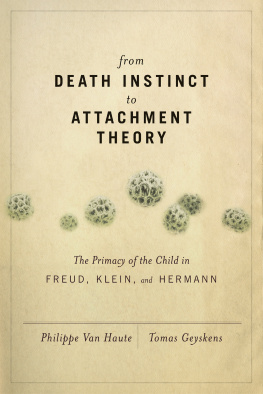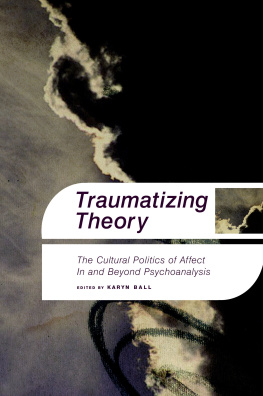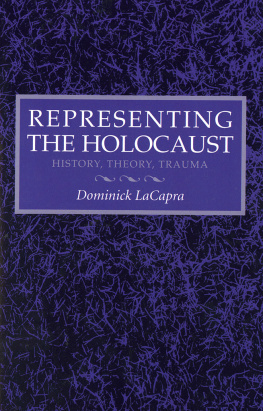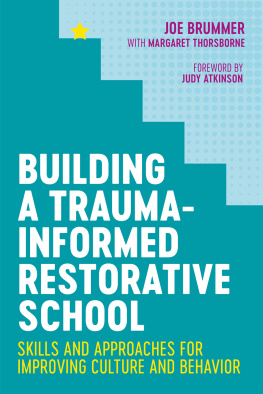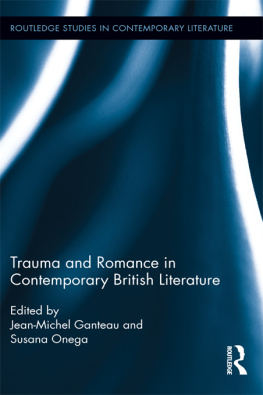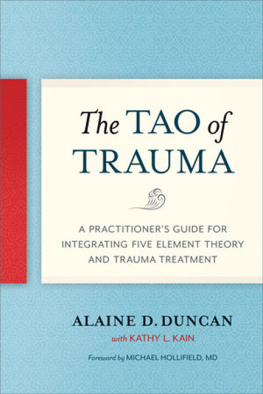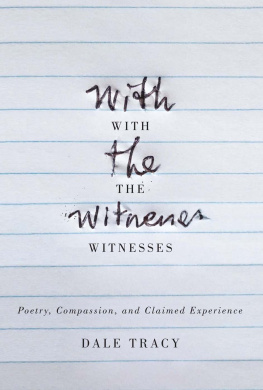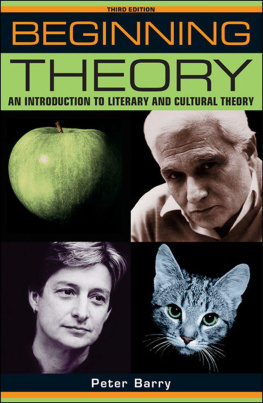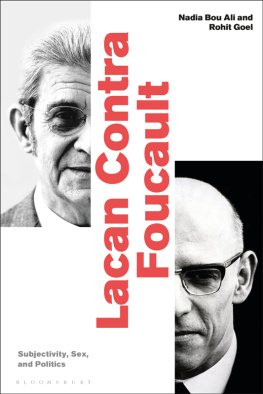
THE FUTURE OF TRAUMA THEORY
This collection analyses the future of trauma theory, a major theoretical discourse in contemporary criticism and theory. The chapters advance the current state of the field by exploring new areas, asking new questions and making new connections.
, Politics and Subjectivity, turns explicitly to politics and subjectivity, focusing on the state and the various forms of subjection to which it gives rise, and on human rights, biopolitics and community.
Each chapter, in different ways, advocates a movement beyond the sorts of texts and concepts that are the usual focus for trauma criticism and moves this dynamic network of ideas forward.
With contributions from an international selection of leading critics and thinkers from the US and Europe, this volume will be a key critical intervention in one of the most important areas in contemporary literary criticism and theory.
Gert Buelens is Professor of English at Ghent University, Belgium, and a founder member of LITRA, the Centre for Literature and Trauma.
Sam Durrant is Senior Lecturer in Postcolonial Literature at the University of Leeds, UK.
Robert Eaglestone is Professor of Contemporary Literature and Thought and Deputy Director of the Holocaust Research Centre at Royal Holloway, University of London, UK.
THE FUTURE OF TRAUMA THEORY
Contemporary literary and cultural criticism
Edited by Gert Buelens,
Sam Durrant and Robert Eaglestone

First published 2014
by Routledge
2 Park Square, Milton Park, Abingdon, Oxon OX14 4RN
Simultaneously published in the USA and Canada
by Routledge
711 Third Avenue, New York, NY 10017
Routledge is an imprint of the Taylor & Francis Group, an informa business
2014 Gert Buelens, Sam Durrant and Robert Eaglestone for selection and editorial matter; individual contributions the contributors
The right of Gert Buelens, Sam Durrant and Robert Eaglestone to be identified as the authors of the editorial material, and of the authors for their individual chapters, has been asserted in accordance with sections 77 and 78 of the Copyright, Designs and Patents Act 1988.
All rights reserved. No part of this book may be reprinted or reproduced or utilised in any form or by any electronic, mechanical, or other means, now known or hereafter invented, including photocopying and recording, or in any information storage or retrieval system, without permission in writing from the publishers.
Trademark notice: Product or corporate names may be trademarks or registered trademarks, and are used only for identification and explanation without intent to infringe.
British Library Cataloguing in Publication Data
A catalogue record for this book is available from the British Library
Library of Congress Cataloging in Publication Data
A catalog record for this title has been requested
ISBN: 978-0-415-69458-2 (hbk)
ISBN: 978-0-415-69459-9 (pbk)
ISBN: 978-0-203-49310-6 (ebk)
Typeset in Bembo
by Saxon Graphics Ltd, Derby
CONTENTS
Michael Rothberg
Gert Buelens, Sam Durrant and Robert Eaglestone
PART I
History and culture
Robert Eaglestone
Dominick LaCapra
Stef Craps
Ananya Jahanara Kabir
Nouri Gana
Sam Durrant
PART II
Politics and subjectivity
Lyndsey Stonebridge
Jenny Edkins
Pieter Vermeulen
Roger Luckhurst
Gert Buelens is Professor of English at Ghent University, where he directs a long-term research project on the concept of authorship, and chairs the Department of Literary Studies. He edits the e-journal Authorship, is the author of some 60 essays in collections and journals, and has, most recently, co-edited The Catastrophic Imperative: Subjectivity, Time and Memory in Contemporary Thought (with Dominiek Hoens and Sigi Jttkandt). He is currently working on two volumes for the CUP edition of Henry Jamess fiction.
Stef Craps teaches English at Ghent University, Belgium, where he also directs the Centre for Literature and Trauma. He is the author of Postcolonial Witnessing: Trauma Out of Bounds (Palgrave Macmillan, 2013) and Trauma and Ethics in the Novels of Graham Swift: No Short-Cuts to Salvation (Sussex Academic Press, 2005), and has guest-edited special issues of Criticism: A Quarterly for Literature and the Arts (2011; with Michael Rothberg) and Studies in the Novel (2008; with Gert Buelens) on the topics of, respectively, transcultural negotiations of Holocaust memory and postcolonial trauma novels. His next book project is an introductory guide to the concept of trauma for Routledges New Critical Idiom series.
Sam Durrant is Associate Professor of Postcolonial Literature at Leeds University. His first monograph Postcolonial Narrative and the Work of Mourning: J. M. Coetzee, Wilson Harris and Toni Morrison was published by State University of New York Press in 2004. He co-edited Essays in Migratory Aesthetics with Catherine Lord (Rodopi, 2007) and has published numerous articles on postcolonial literature and aspects of critical theory. His current monograph, due from Routledge in 2014, is entitled Mourning and Postapartheid Literature: Reconciliation and its Discontents.
Robert Eaglestone is Professor of Contemporary Literature and Thought at Royal Holloway, University of London. He works on contemporary literature and literary theory, contemporary philosophy and on Holocaust and Genocide studies. He is the author of five books, including The Holocaust and the Postmodern (2004) and Contemporary Fiction (2013), and the editor or co-editor of six more. His work has been translated into five languages.
Jenny Edkins is Professor of International Politics at Aberystwyth University; her most recent books are Missing: Persons and Politics (Cornell, 2011) and Trauma and the Memory of Politics (Cambridge, 2003). She is editor with Maja Zehfuss of the textbook Global Politics: A New Introduction, and series editor with Nick Vaughan-Williams of the Routledge Interventions book series.
Nouri Gana is Associate Professor of Comparative Literature and Near Eastern Languages and Cultures at the University of California, Los Angeles. He has published numerous articles and chapters on the literatures and cultures of the Arab world and its diasporas in such scholarly venues as Comparative Literature Studies, PMLA, Public Culture and Social Text. He has also contributed op-eds to such magazines and international newspapers as The Guardian, El Pais, The Electronic Intifada, Jadaliyya and CounterPunch. Author of Signifying Loss: Towards a Poetics of Narrative Mourning (Bucknell UP, 2011), he is currently completing a book manuscript on the politics of melancholia in the Arab world and another on the cultural politics of the Tunisia revolution. In addition, he is the editor of The Tunisian Revolution: Contexts, Architects, Prospects and of The Edinburgh Companion to the Arab Novel in English (Edinburgh UP, 2013).
Ananya Jahanara Kabir is Professor of English Literature at Kings College London. She is the author of Territory of Desire: Representing Kashmir (2009) and
Next page
